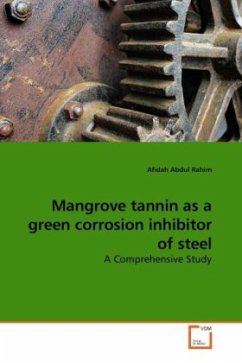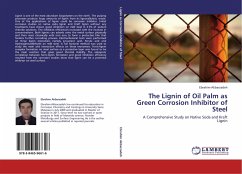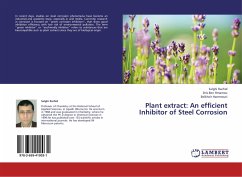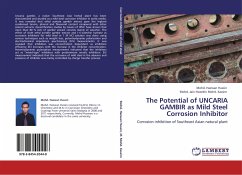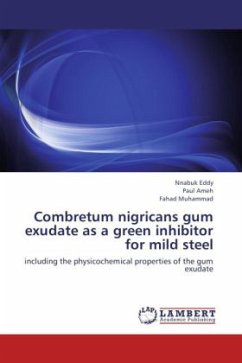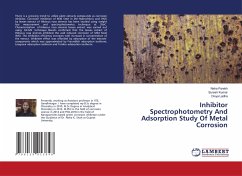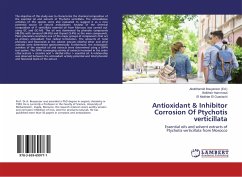Long exposures of metal surfaces in corrosive media may lead to the generation of oxide films. Minimisation of corrosion attack on the metal surface requires an effective corrosion inhibitor. The known hazardous effects of most synthetic corrosion inhibitors are justifications for the continuous quest towards the search for safer and environmentally friendly natural products. Plant extracts, for example contain diverse compounds that often can be easily isolated at low cost. This book, therefore, provides a comprehensive study of mangrove (Rhizophora apiculata) tannin as a potential corrosion inhibitor of steel. Its role as a rust converter and corrosion inhibitor were evaluated by electrochemical and chemical techniques and supported by surface analyses. This work offers a better understanding on the mechanism of inhibition of steel and would benefit those in search of an alternative corrosion inhibitor of metals that are formulated from natural, biodegradable and non-toxic organic compounds.
Bitte wählen Sie Ihr Anliegen aus.
Rechnungen
Retourenschein anfordern
Bestellstatus
Storno

